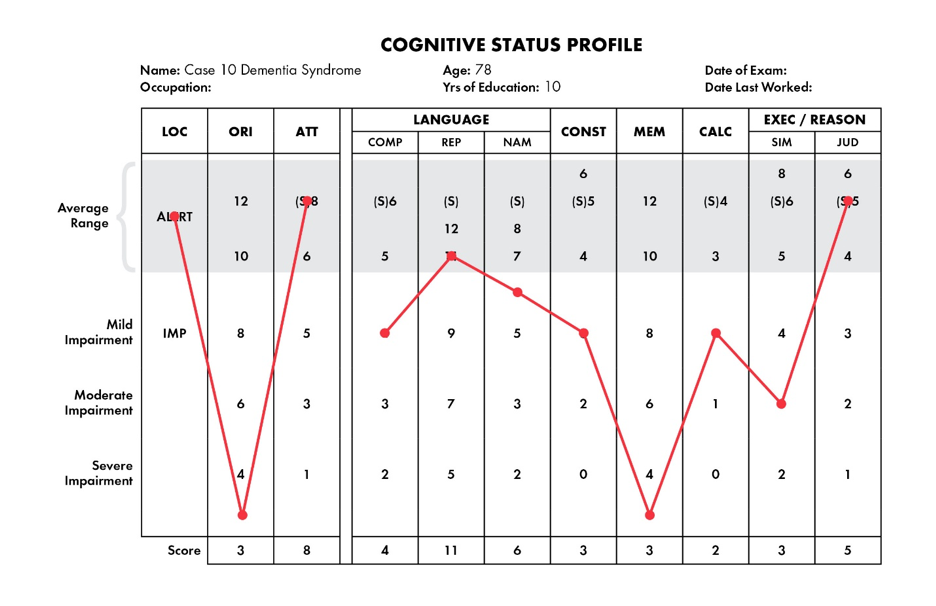Orientation:
A score of 3 out of 12 indicates severe disorientation. This may reflect significant confusion and/or memory impairment but other possibilities include aphasia and psychosis. It is important to rule out possible medication side effects.
Attention:
A score of 8 out of 8 falls within the average range.
Language:
The Comprehension subtest score indicates an inability to consistently perform two-step commands and the Naming subtest score indicates a weakness in confrontation naming. In the absence of hearing impairment or significant problems with attention, this strongly suggests acquired language impairment that should be further evaluated.
Constructions:
A score of 3 out of 6 indicates mild spatial construction disability, but it still falls within the broad range of average for this age group. Spatial-construction ability varies widely in the normal population. This patient should be questioned closely about a possible longstanding weakness in this area. This patient needs to be further evaluated both medically and cognitively.
Memory:
A score of 3 out of 12 indicates severe memory impairment. It is important to rule out treatable causes of memory problems and/or more general cognitive decline. This patient needs to be further evaluated both medically and cognitively.
Summary:
This patient has specific areas of impairment: Orientation. Comprehension, Naming, Constructions, Memory, Calculations, Similarities.
MCI Index:
The MCI Index of 6 strongly suggests a Mixed Dementia Syndrome that is likely to impact occupational and social functioning. This patient should be further evaluated for treatable causes of cognitive decline. The patient also has language impairment that must be integrated into the diagnostic formulation.
